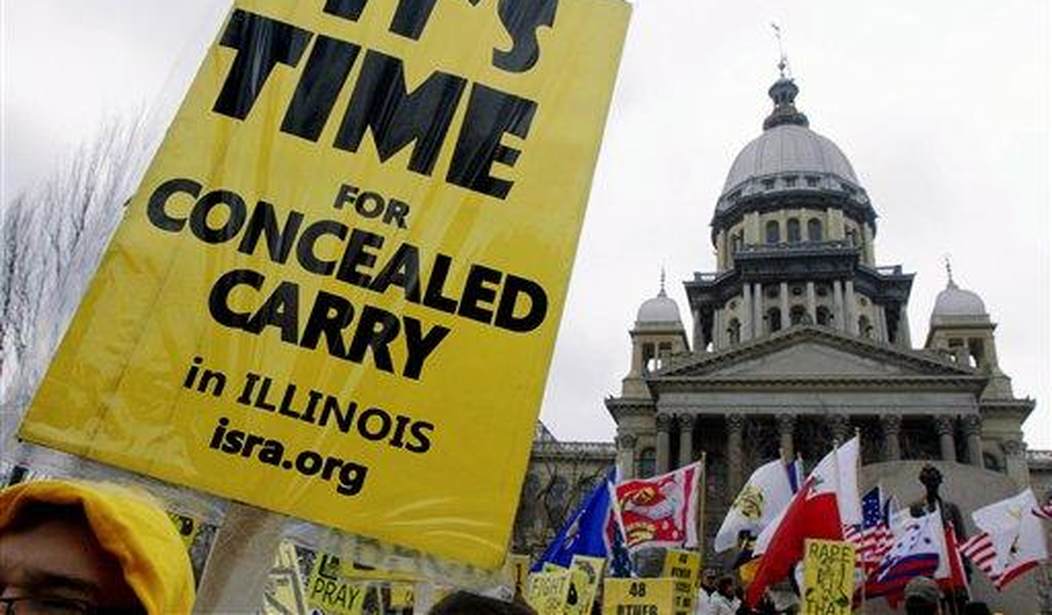Across social media, there have been memes, blog posts, and articles about how the Supreme Court’s gay marriage ruling in Obergefell v. Hodges should be applied to national reciprocity regarding concealed carry permits. The day national reciprocity for concealed carry permit holders becomes law of the land will be a great day for civil rights in this country. Yet, it is not; we still have to continue to fight for it. At the same time, the National Rifle Association is reminding gun owners that they shouldn’t view the Obergefell decision as a reason to carry their firearms in states that still don’t recognize their concealed carry permits. For starters, the Supreme Court hasn’t decided if carrying a loaded handgun in public* is a constitutional right.
…we strongly advise concealed carry license holders not to assume Obergefell provides them with the legal basis they need to carry without an in-state license in strongly anti-gun states such as Maryland, New Jersey, or New York. Doing so at this point would still subject the traveler to arrest and criminal prosecution.This is so for a number of reasons, chief of which is that the U.S. Supreme Court has not yet ruled squarely on the question of whether the Second Amendment protects the right to carry a loaded handgun in public, and if it does, whether states must recognize each other’s permits. The landmark cases of Heller and McDonald only concerned the question of handgun possession in the home.
Until the Supreme Court rules on the issue conclusively, certain reliably anti-gun jurisdictions can be counted on to exist in a state of denial and defiance. If states and lower courts can ignore a congressional statute like Firearm Owners’ Protection Act – and they do – they certainly can ignore arguments that the philosophical bases for interstate recognition of same-sex marriage compel interstate recognition of concealed carry permits.
One way to set up the legal battle to clarify the right to carry in public in all 50 states could come from the lawsuits from residents in “may issue” carry states over the “good” or “justifiable” need clauses. So far, the Supreme Court has rejected to hear arguments from petitions that directly challenge such statutes in Woollard v. Gallagher–a Maryland-based lawsuit– (2013) and Drake v. Jerejian, which challenged New Jersey’s concealed carry process (2014). The plaintiff in the New Jersey case–John Drake–has two permits from Utah and Florida, which allows him to carry in 38 states, except for his home state. The Drake case also asked the question that the NRA wants to be clarified before the Court, which is “whether the Second Amendment secures a right to carry handguns outside the home for self-defense.” I’m sure more lawsuits will appear before the Supreme Court–and I hope they do.
Recommended
*I think it is a right, but until the Supreme Court decides otherwise, supporters of the Second Amendment must let the process work–and that process can take a long time.

























Join the conversation as a VIP Member